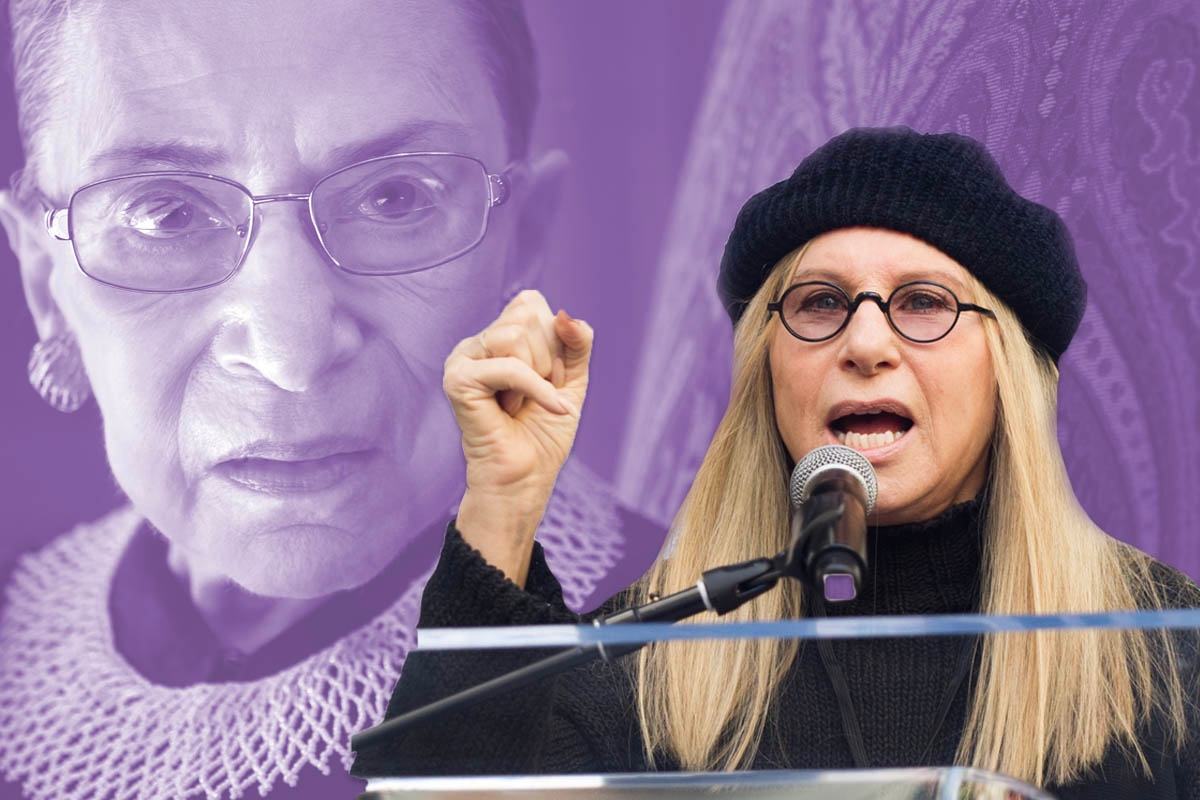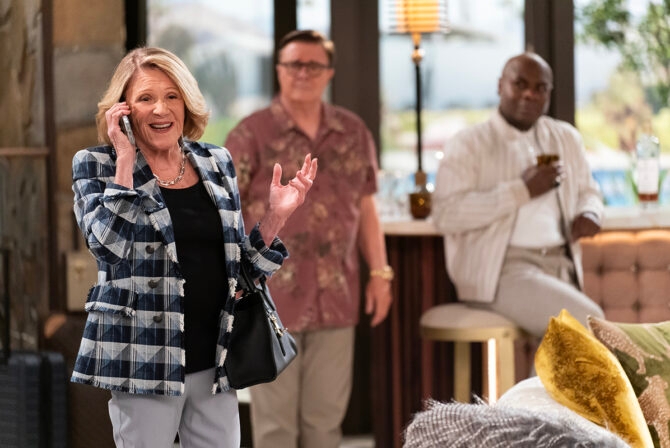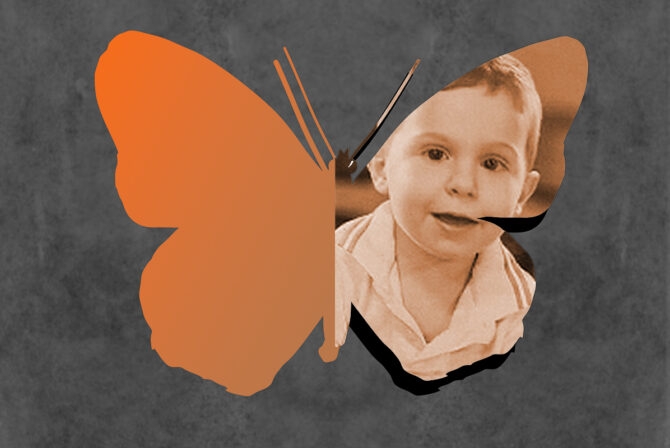Back in April, Barbra Streisand was presented with the Justice Ruth Bader Ginsburg Woman of Leadership Award by Supreme Court Justice Sonya Sotomayor.
Her acceptance speech, which was a little over 10 minutes long and delivered virtually to surprisingly little fanfare, is timely, heartfelt and powerful. She touched on so many topics that matter today — from the attack on reproductive rights and voting rights to the spread of misinformation online. It was a reminder that Babs has always been outspoken and fierce when it comes to her politics and philanthropy — from her involvement with Bella Abzug’s political campaign in the 1970s, to her recent efforts to raise money for Ukraine,
While Streisand, 81, was vehement that she would never equate her achievements to those of the award’s namesake, RBG, they were both “two Jewish girls from Brooklyn who grew up poor but had a burning desire to see what was beyond the Brooklyn Bridge.”
“We both had big dreams,” she said, “and we both pursued them often against the odds.”
Antisemitism, Streisand shared, was a barrier in both their work — for Justice Ginsburg, it was the first type of discrimination she ever faced. Streisand recalled how early in her own career, she was rejected from a record contract because she was “too ethnic,” knowing exactly what those words meant.
Decades after that first rejection, when Streisand started working on “Yentl,” a movie about a Jewish woman in 1904 Poland pretending to be a man so she could study at a yeshiva — a story that she felt would “say something about gender inequity” — many people told her it was “too Jewish.”
“It’s about a woman who wanted an education just like Justice Ginsburg,” Streisand said in her speech.
Just as RBG was admonished for taking up a spot in law school that should’ve belonged to a man, and was fired from her job when she became pregnant with her daughter, Streisand shared that when she wanted to direct “Yentl,” which eventually led her to become the first female director to win a Golden Globe, “they looked at me like you, a woman and an actress yet, you’re going to write, direct, produce and be fiscally responsible for this multi-million dollar budget?”
“Would they have asked that if I were a man?” she posed before answering, “I doubt it.”
While Streisand bestowed an award on RBG in 1995, their first intimate conversation was in 2012, at the Aspen Institute. The two had a chat in a quiet room, where the Supreme Court Justice talked about her love for music and opera and the parallels she saw in “the beauty of music and the beauty of the law,” which she saw as both having “the potential to enrich people’s lives.” Ginsburg told Streisand that she loved her classical album, and Streisand told Ginsburg how much she admired her for her achievements and for being “a beacon of light to so many women and girls.”
In her Woman of Leadership Award acceptance speech, Streisand quoted a famous saying of the justice that she still struggles with: “Reacting in anger will not advance one’s ability to persuade.” Babs admitted that she struggles with curbing her own anger sometimes, but conceded that Justice Ginsburg “spoke with a soft voice, but she sure made a lot of noise over the years.”
Still, Streisand believes that RBG would’ve been incensed at the overturning of Roe v. Wade, saying, “She would have forcefully dissented from the Dobbs decision.”
“Policing women’s healthcare is an enormous step backwards. Women are not handmaidens, they’re not just vessels for birthing. What happens to the promise of judicial precedence after 50 years of women having reproductive choice?” she asked.
Streisand also brought up gerrymandering and the attack on voting rights, a cause that meant a lot to RBG. “For democracy to function, people must be engaged when it comes to voting. No one person is more important than the other,” she declared, recalling those few votes that changed the face of our nation in the 2000 election.
She talked about the spreading of “fake news” and misinformation. In the “24-hour media” cycle, she claimed, “truth and facts are often distorted by disinformation and lies.”
“Truth is vital to sustain our democracy,” she pronounced, which is why she founded the UCLA Barbra Streisand Center in 2021, which is dedicated to studying the pursuit of truth in the public sphere and climate change.
Streisand ended her speech by talking about a Jewish tradition which both she and Ginsburg embraced — that of tikkun olam, “which means to repair the world, and I love being able to play a small part in that,” she said. “I believe it fulfills the soul when we help others.”
“Some of our problems together seem insurmountable, but,” as she wrote in “Yentl,” “‘nothing’s impossible.’ That phrase could apply to Justice Ginsburg’s profound spirit and legacy.”
“May her memory not only be a blessing,” Streisand said, invoking the Jewish saying that honors the dead, “but a profound call to action for each and every one of us.”
Amen to that.








